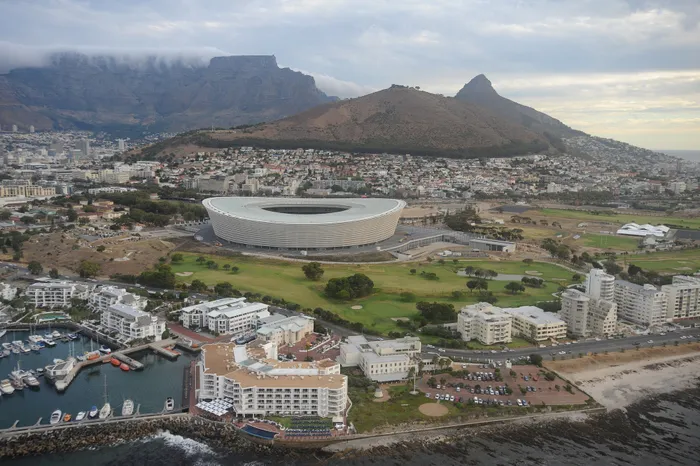Bo-Kaap residents call for urgent Airbnb regulations to protect community

Bo-Kaap Civic and Ratepayers Association says that commercial pressure exerted by Airbnb is a powerful engine of gentrification and economic displacement.
Image: Henk Kruger/Independent Newspapers
The Bo-Kaap Civic and Ratepayers Association (BKCRA) is demanding urgent regulation of Airbnb in historic Bo-Kaap.
They say unchecked commercialisation threatens the community's residential stability, cultural heritage, and identity.
Last week, they distributed a statement to residents in community forum groups and raised it with ward 77 councillor, Francine Higham, during a monthly meeting on Wednesday, November 5.
Association chairman Sheikh Dawood Terblanche said that over the months, several discussions were held about all issues in Bo-Kaap, including how tourism was currently impacting the community.
There are more than 50 properties in Bo-kaap on the Airbnb platform, depending on the type of accommodation.
"The distinctive, close-knit, inter-generational community life is under severe threat from gentrification and tourism pressure," read the statement.
The association said that the residential area has shifted to being a commercial or tourism focus.
"It is slowly transitioning from a primarily residential, working, and middle-class community, a living testament to Cape Malay heritage, to a highly sought-after tourist and investment location," said Sheikh Terblanche.
He said that the iconic brightly coloured houses, once a historic expression of freedom, have now become a commodity.
He said that the association has also had an increase in complaints from neighbours and concerned residents over the last two years.
"These complaints overwhelmingly point to the direct impact of transient occupancy on the quality of life for permanent residents," he said.
Sheikh Terblanche also called on the City of Cape Town to intervene to protect the residential integrity and cultural sanctity of Bo-kaap.
They want the accommodation service provider to be regulated in residential areas, with zone enforcement, licensing, and registration; an owner-occupancy clause, that hosts should reside on the premises for a majority of the year to ensure a genuine "home-sharing" model rather than an absentee commercial operation.
Airbnb had not responded at the time this article was published.
City of Cape Town spokesperson Luthando Tyhalibongo said that various regulatory and policy mechanisms were in place to support the protection of the unique culture and heritage of the Bo-kaap, and to manage the challenges cited by the Bo-kaap residents' association.
These include the local spatial development framework (LSDF); the heritage protection overlay zoning, which came into effect in 2015; and the municipal planning by-law, as amended in 2025.
"The local LSDF and HPOZ were extensively workshopped with Bo-kaap residents and reflect the inputs of robust public participation. The HPOZ aims to ensure that any development does not significantly impact the heritage of the area or site under its protection," said Mr Tyhalibongo.
He said that short-term letting, including Airbnb, is regulated on a land-use basis. Properties may not be used for commercial purposes without a land-use right and may be reported for violations and inspections.
Mr Tyhalibongo said that land-use violations could be reported for investigation, which could result in penalties for property owners. Reports can be submitted online
"The City acts diligently to investigate all complaints in this regard," he said.
Cape Town Central police station's community police forum chairman, Marc Truss, said they had not received complaints of noise, disrespect of traffic from the Bo-kaap community, but that short-term lease concerns have been raised in other parts of the city.